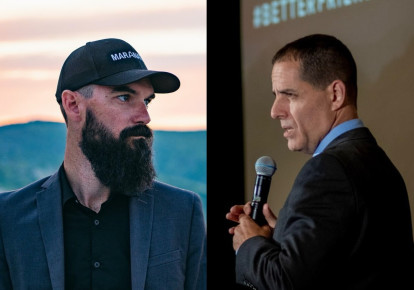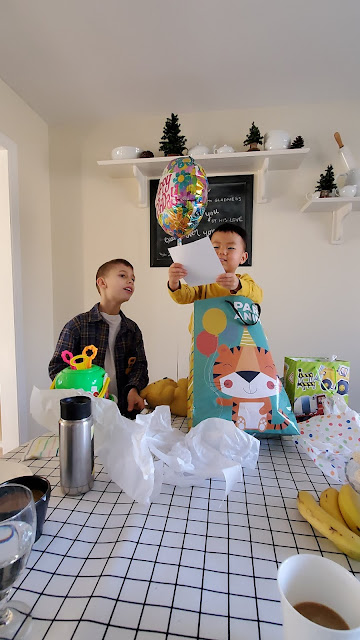Focused on compassion; Israel's formerly classified Good Neighbor project carried out during the height of the Syrian War, beginning in 2016, was featured this wk on The Jerusalem Post! Love FAI's involvement in this initiative!!
The following article reposted from Israel News, in The Jerusalem Post 2/18/2020
7,000 Syrians were treated in military clinics and another 5,000 in civilian hospitals under Operation Good Neighbor - and it helped secure Israel's borders
An unusual tourist arrived at Ben-Gurion Airport in January. When the border patrol agent there took his Netherlands passport, it only took a glance at Emeth’s olive skin and Persian features to see that he was not a native Dutchman. His place of birth? According to the passport, Tehran.
Asked to step aside, he was taken to a room and asked to wait. Four hours later, agents returned with questions.
Presumably they had done a thorough background check. What did they learn?
Emeth (a pseudonym) gave me some idea when he sat down to tell his story while at a conference in the Galilion Hotel and Conference Center just north of the Hula Nature Reserve in the Upper Galilee. When our conversation ended an hour later, I was stunned.
The conference was a Christian confab called the Maranatha Alliance. I went to the gathering to learn about a nonprofit called Frontier Alliance International (FAI). The group is intriguing because, during the last two and a half years of the Syrian civil war, the Israel Defense Forces partnered with this small Evangelical organization to provide humanitarian relief to enemies of the Jewish state.
Aid that was provided by Israel – including tons of food and clothing, more than a million liters of fuel, electric generators, tents, vehicles, diapers, baby food, medical equipment and medications – had to find its way into Syrian border villages. Where the IDF could not go, foreign volunteers to FAI did. Acting as proxies for Jerusalem, they provided medical aid from Israel for its enemies behind enemy lines. At the same time, medical refugees from Syria were welcomed into Israel for medical care in Israeli clinics and hospitals by Israeli doctors and nurses.
It was called Operation Good Neighbor and it was a military endeavor. When it officially concluded in September 2018, some 7,000 Syrians were treated in military clinics and another 5,000 in civilian hospitals.
Was it altruism that drove the operation? Was Israel simply being nice?
“Not at all,” says Lt.-Col. (res.) Marco Moreno. “Of course it was meaningful to help, but fundamentally it was a security op. It was a way to defend our borders, and it worked.”
In 2011, Moreno, a 36-year-old officer in the IDF’s elite Human Intelligence Division, also known as Unit 504, was promoted to Head of Unit 504’s Northern Command. His mandate? Analyze Israel’s security risks from Lebanon and Syria, and then develop a strategic plan to mitigate those risks.
It is impossible to understand the significance of who Moreno is and what he did next without a basic understanding of IDF Unit 504. In short, it operates in the narrow gap between the Mossad, Israel’s foreign intelligence agency, and the Shin Bet, its internal security force. The Shin Bet’s realm extends to Israel’s borders while the Mossad operates in international arenas abroad. The gap in between are areas just across Israeli borders.
It is in this gap, this realm, that Unit 504 recruits foreign informants, interrogates foreign prisoners and meets with foreign leaders. In almost every case, these are face-to-face encounters with sworn enemies of the Jewish state. Qualifying to serve in the human intelligence unit includes a rigorous application process, a broad range of special forces military training and graduation from an exclusive bachelor’s program at the Hebrew University of Jerusalem.
At age 36 in 2011, Moreno was fully qualified and equipped for his assigned task.
“What will happen if there is any kind of attack from Syria?” Moreno asks while sipping coffee in a lounge at the Galilion Hotel.
His English is excellent, his Israeli accent classic and his manner charmingly droll.
“We are a strong army,” he replies, answering his own question. “If an enemy attacks from across our borders, we will shoot him. This is a given.” Shrugging his shoulders, he adds, “Maybe, I thought, there is another way to deal with the situation.”
“So, I went and met with leaders in Syrian villages along Israel’s borders.” Notably, he did not meet with them in Israel. Virtually every village fell under the description of “rebel” against Syrian President Bashar Assad. Fiercely independent, often at odds with one another, their real allegiance was to tribal heads. While all were Muslim, political ideologies varied from moderate Islam to radical fundamentalism.
Moreno continues, “I said to them, ‘There is no need to pretend; we are enemies. If you send rockets or jihadists against our people, we will kill you. It is our job; it’s what we’ll do to protect ourselves. Still, we don’t want you to attack us and we don’t want to kill you. Why not try a different way?
‘You prevent attacks against us and in return we will provide infrastructure and humanitarian aid when your people are attacked by Assad and his Iranian puppet masters.’”
It was not long before almost every village, every tribe, agreed.
Thus, five years before the publicly declared Operation Good Neighbor began in 2016, its foundation was laid, relationships were established, logistics formed and methods of exchange put into place.
The operation itself was prompted by Moreno’s retirement from active service in the IDF.
“At that time, our unit came to an agreement. Let’s open this up to the world to partner with the IDF in giving Syrians aid! And so we did, inviting the biggest and best known nonprofit organizations in the world.
“None of them answered. Even the United Nations ignored us.”
The only ones who showed interest were a few Christians, including a tiny organization called Frontier Alliance International. Its director, a young guy named Dalton Thomas, was working in Iraq. He and his family flew to Israel to discuss the matter with me, and they brought everything they had with them.
“We needed non-Israelis to enter Syria with on-site medical aid, and they were willing to do it.”
A partnership was formed, and it worked. FAI set up its own operations center on the Golan Heights, from where it recruited and managed medical volunteers who snuck into Syria riding donkeys in the middle of the night while, at the fence, IDF soldiers stood guard.
Partnering with the Evangelical FAI, there was another benefit.
“I told them,” says Moreno, “convert all the Muslims you want. If they convert to Christianity, that is good for Israel. Christians won’t blow themselves up to kill us.”
His only proviso? “Do not missionize Jews. It is offensive to us.”
FAI’s integrity in all that it did was so impressive that today Moreno serves as its official director of the Israel Division.
“Our focus is on borders in the Middle East,” says Thomas. “Why? Because that’s where conflicts begin, but most governments do not put their focus there. Israel is an exception.”
In the aftermath of its partnership with the IDF in Operation Good Neighbor, Thomas acknowledges current FAI operations in northern Syria on the border with Turkey, and eastern Iraq on the border with Iran. Specific FAI activities are airbrushed and it is implied that work is being done in other places, too.
“The objective is to de-escalate tensions. In many cases, we begin by setting up and running birth clinics,” he explains. As it did in southern Syria, providing health services to women and children builds trust and with it goodwill.
Maranatha Alliance, it turns out, is not the same thing as Frontier Alliance International.
“Maranatha,” Thomas clarifies, “provides a decentralized affiliation for Christian volunteers and for various Christian communities in the Middle East. Instead of a denomination based on creed, it builds a family based on relationships centered on just one thing.”
That one thing goes to the single if unfamiliar word, maranatha, an Aramaic phrase adopted by early Christianity. Its deliberate double meaning is “Our Lord has come” and “Come, O Lord.”
Why was Operation Good Neighbor an effective strategy for securing Israel’s Syrian borders?
The answer goes to things Emeth revealed in our conversation.
“Growing up in Iran,” he tells me, “was not at all like the way Tehran presents itself to the world. It’s true that there was anti-Israel and anti-American propaganda from the government. But among my classmates and friends, in interactions on the street and in local communities, I never heard a single bad word against Israel or the US. Just the opposite, in fact. People held them both in high regard.”
In short, among those living in countries that are antagonistic to Israel, even in one that is sworn to its destruction, many civilians, sometimes most, do not share their governments’ animosity. There are distorted perceptions, even fears, stemming from things their officials say, but nothing close to a hardy hatred. Correct information delivered in an unexpected way can make allies out of enemies, friends out of foes.
The lesson Israel has learned is that based on a visceral commitment to its identity and existence, tangible expressions of compassion are every bit as important as conventional arms, nuclear warheads, cyber expertise, hi-tech missiles, drones and jets.
Expressing genuine compassion for the enemy, especially in the face of murderous intent, has become a primary weapon of choice to protect the Jewish state. Call it “The Hesed Offense.”
https://m.jpost.com/Israel-News/Hesed-offers-a-counterintuitive-initiative-on-securing-Israels-borders-617925





























